Table of Contents
In today’s digital-first, data-driven world, using the power of data is a must, not a maybe. Organizations that proactively use their data are 23% more likely to acquire new customers and 19% more likely to achieve above-average profitability, according to recent industry reports. Such data-savvy companies make better decisions, understand their customers deeply, and consistently outperform their competitors. Consequently, many are now exploring advanced data monetization strategies to extract maximum value from their data.
Are you curious about unlocking opportunities of your existing data? Discover how to monetize data effectively with real-world examples and actionable insights.
What is data monetization strategy?
Data monetisation is commonly defined as the process of using data to get quantifiable economic benefits. There are three major methods to achieve this:
- Using data to make more informed decisions, thereby optimising business outcomes.
- Selling data as a service or product.
- Sharing data with other businesses for mutual benefit.
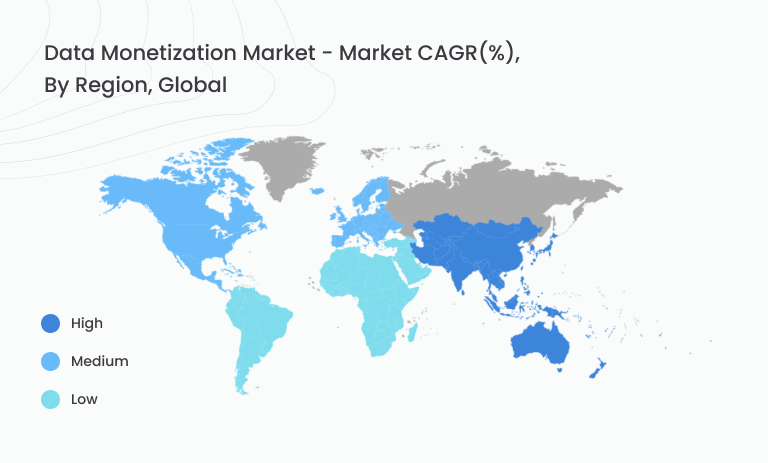
Internal data monetization focuses on optimizing internal operations, enhancing marketing efforts, improving customer experiences, and streamlining maintenance processes. In contrast, external data monetization involves leveraging data to expand an organization’s product offerings through innovative data-driven services or new business models, creating lucrative revenue streams.
Regardless of the approach, data monetisation becomes more profitable when the context is provided, and insights are derived. Thus, the more insightful the data, the greater value it brings.
Why monetize data?
Organisations should consider data monetization for several compelling reasons:
- Creating new revenue streams: Monetizing data can unlock new revenue opportunities, especially in data-rich industries like healthcare, finance, and marketing.
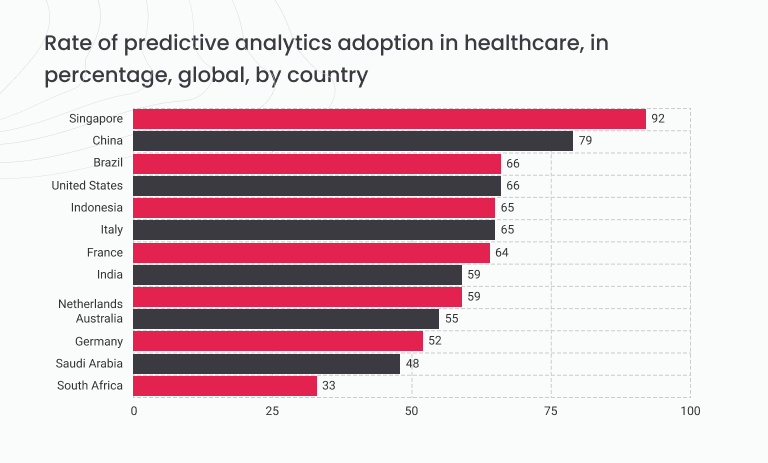
- Enhancing business insights: Data monetization allows companies to gain deeper insights into customer behaviour, market trends, and operational performance, which can inform future strategies and decision-making.
- Improving customer experience: Data monetisation enables organisations to deliver more personalised and relevant customer experiences, boosting satisfaction and loyalty.
- Enabling better risk management: Monetising data provides a helicopter view of operations, helping identify and mitigate potential risks and compliance issues.
Overall, data monetisation offers substantial benefits, from generating revenue to gaining insights and enhancing customer experiences. However, organisations should approach it carefully, ensuring compliance with legal and ethical standards while protecting customer data privacy and security.
Data monetisation in numbers
Data monetisation isn’t a new concept, but the emergence of data marketplaces and exchanges makes it easier to implement. Gartner predicts that by 2025, 35% of large organisations will buy or sell data through formal online data marketplaces.
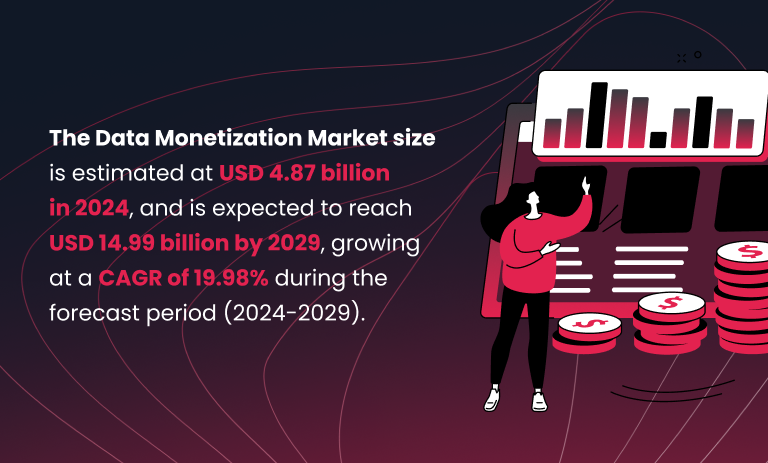
Economists highlight the importance of data because it is a non-depleting asset; unlike finite resources such as oil, it can be sold or reused repeatedly without losing value. Many industries are experiencing a revolution in collecting and analysing more data, which enhances existing monetisation efforts and creates new revenue models.
Speaking about the challenges, you won’t be surprised. Data quality is the major obstacle to monetising data, as 56% of respondents reported. Data security, a concern for 37% of respondents, becomes particularly challenging when data sharing requires proper anonymisation. Additionally, 37% of respondents find it fairly challenging to integrate data products into existing systems.
Beyond data and technology-related issues, respondents noted several other challenges: lack of management support (34%), lack of use cases (32%), and insufficient expertise to implement data monetisation initiatives (31%). Furthermore, 25% cited cost as a barrier, while 19% pointed to a shortage of data assets.
Key steps on the way to data monetisation
Once you’ve decided on your own data monetization strategy, you’ll need to establish transparent processes. Here is a step-by-step guide to help you implement a data monetisation framework.
Gather your data, centralise it, and analyse
Gather all necessary data into one source. Centralising data into a few dashboards makes it easier to analyse, assess, and demonstrate value to internal and external stakeholders.
Enable your internal and external parties to log in and quickly find what they need. Prioritise data governance practices and ensure all parties have access to a single source of truth, allowing you to maximise the value of gathered information.
Decide on an operating model
There is no one-size-fits-all approach to data monetisation. High-performing companies often start with internal data monetisation before advancing to selling data to third parties. Moreover, your data might hold more value for external companies than internal use, influencing your choice of an operating model.
Another top consideration is allowing other parties to use data within your platform or only grant them access to view your insights and conclusions. This decision will shape how you structure and manage your data monetisation efforts.
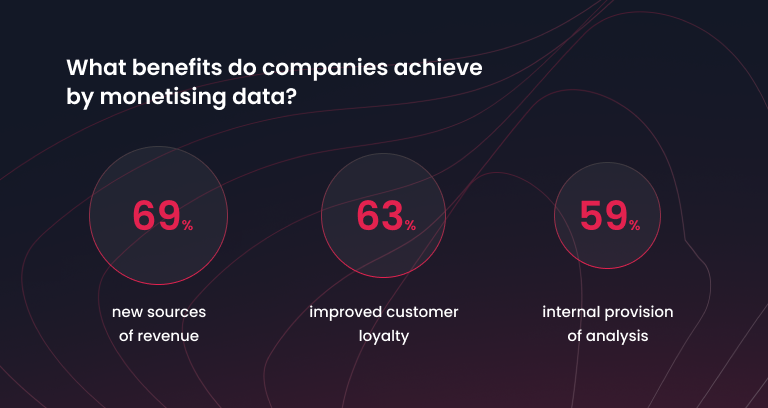
Comply with governance and cybersecurity regulations
The most important step you have to make is ensuring that data adheres to governance and compliance guidelines and best practices. With strict data regulations, such as Europe’s General Data Protection Regulation, it’s likely that global governments will continue tightening data legislation.
Data integrity is also a top priority. Users have to trust the accuracy of the data, as businesses cannot make critical decisions based on doubtful insights.
Similarly, cybersecurity is a key consideration throughout the data monetisation process. You have to prove that sensitive data is adequately protected; with this assurance, third-party buyers will likely have confidence in your services. Thus, your information must be impenetrable to unauthorised access attempts.
Find out more about the benefits and importance of Big Data Analytics in Fintech.
Real-world cases: data monetization examples
Uber
Uber has shaken up transportation with its unique model that links drivers and riders in a mobile app. The giant offers traditional rides, freight services, and food delivery. As a hallmark of the gig economy, Uber has transformed the industry. Moreover, it has accumulated a vast amount of data, paving the way for advanced strategies for data monetisation.
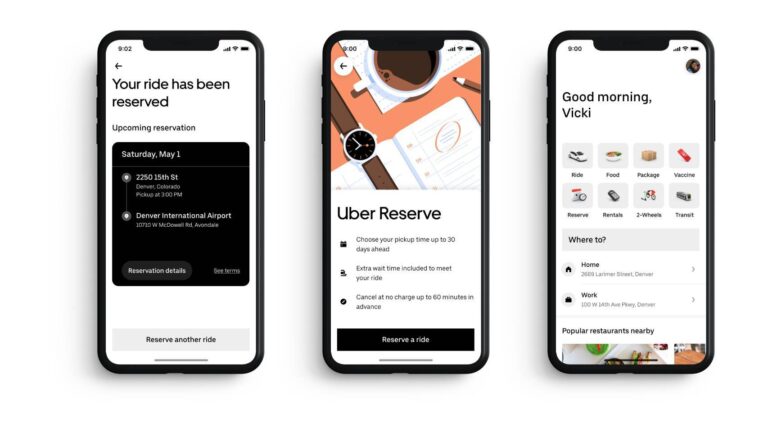
Optimised costs with data-driven rides
Uber’s primary data monetisation model focuses on using data to optimise company costs. The company widely uses geospatial data to find better ride routes and assess travel times. By continuously analysing real-time and historical data, Uber forecasts demand, deploys drivers more accurately, reduces wait times, and lowers operational costs.
Dynamic pricing
Uber employs data-focused pricing models to raise prices during high demand. By regulating prices based on traffic, demand, or weather conditions, the company boosts revenue and motivates drivers to meet existing demand. This approach ensures a balance between supply and demand, providing better service to riders while optimising driver earnings.
Additional services
Uber has also diversified its offering to encompass food delivery and freight logistics. All the data obtained allows Uber to forecast food preferences, optimise delivery routes, and streamline logistics, thereby exploring new revenue streams.
Advertising
Uber monetises data by cooperating with diverse partners to offer clients personalised and targeted advertising. By analysing rider preferences and behaviours, Uber delivers personalised promotions, creating a mutually beneficial situation for both advertisers and riders.
Results
Uber’s data initiatives have diversified its revenue streams. Data-powered services such as Uber Freight and Uber Eats have significantly boosted the company’s revenue.
Uber continually improves customer service by offering efficient routing, personalised recommendations, and tailored promotions, which leads to improved customer loyalty.
By strategically implementing data-driven solutions and proactively managing challenges, Uber has shaken up the transportation industry and demonstrated data’s potential as a key driver of business growth.
ESKIMI
Eskimi is a leading programmatic advertising platform that delivers advanced digital marketing solutions. The company uses data-driven insights to streamline ad delivery and overall ad efficiency.
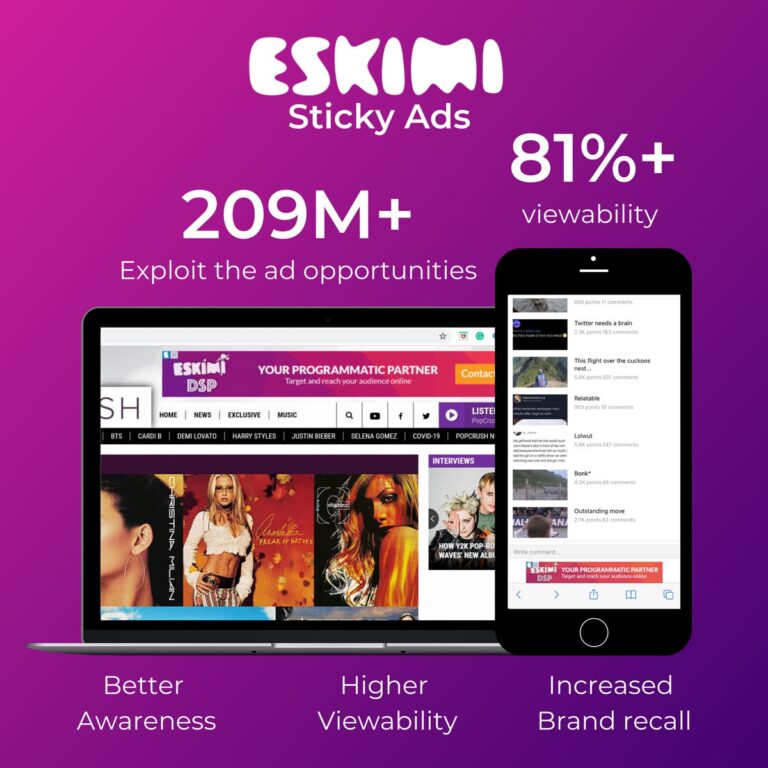
Subsidiary
Eskimi marked its entry into the data monetisation journey with Redmob, a subsidiary company focused on selling user data. It is an independent entity whose main goal is to extract value from the data of its parent company. As a result, Eskimi strategically used its vast user data to generate additional revenue with the help of Redmob.
Building a data repository
The company’s success in data monetisation is rooted in its ability to aggregate vast amounts of user data. It taps into an extensive database that includes user preferences, demographics, and behavioural patterns gathered from the Eskimi platform. This data repository allows Redmob to offer highly personalised advertising, enhancing campaign effectiveness and delivering substantial value to clients.
Programmatic advertising
These two companies proactively use programmatic advertising, which automates buying and selling ad space. This data strategy enables advertisers to reach their target audience effectively, while Redmob enhances the value of its data through data-driven ad placements.
Partnerships
Redmob has established a vast network with advertisers in the digital advertising environment. The company creates win-win relationships by offering access to its rich audience data, enhancing advertisers’ targeting, and generating revenue for Eskimi through data licensing.
Results
By focusing on the value of its audience data, the company has developed a sustainable business model that increases the efficiency of its core offerings.
Advertisers benefit from enhanced targeting capabilities, which result in a higher RPO. The derived insights allow advertisers to create more targeted campaigns and convert more leads.
FITBIT
Fitbit is a leading wearables market brand known for its fitness trackers and smartwatches. With millions of users worldwide, Fitbit is the first brand you think of when it comes to health and wellness tracking. The company excels at collecting extensive health data and strategically using it to benefit both its users and third-party entities.

Health and wellness insights
Fitbit converts raw health-related data into insights through its specialised Health and Wellness Insights Platform. This platform offers aggregated data to healthcare providers, numerous insurers, or even researchers, allowing them to get valuable health data while ensuring user privacy.
Collaboration across healthcare
The company proactively partners with healthcare providers to incorporate data into their health and wellness-related programs. Through these partnerships, Fitbit extends its reach, providing extensive health-related data to help these entities optimise their offerings with targeted, data-driven insights.
Results
Fitbit’s data initiatives have created highly personalised features, boosting user engagement and satisfaction. By analysing data patterns, the company improves its services and products while contributing to complex healthcare research.
Researchers and healthcare providers use anonymised data to identify health trends, design better interventions, and enhance population health understanding. Additionally, Fitbit generates new streams of revenue by licensing anonymised data to partners, ensuring financial resilience. Fitbit’s model demonstrates responsible and ethical data management, enhancing user experience and advancing while addressing privacy challenges.
Learn more about Price Forecasting with Artificial Intelligence & Machine Learning technology.
eBay
eBay, a global eCommerce giant, offers a platform for buying and selling a wide range of products. Thus, eBay operates in a dynamic industry where data is crucial for optimising user experience, improving operations, and generating additional streams of revenue.
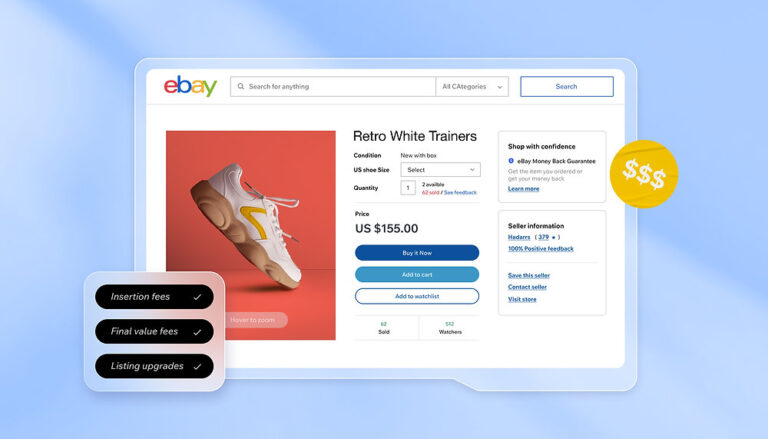
Terapeak Product Research Tool
eBay has embraced an advanced approach to data monetisation through its Terapeak product research tool, which provides access to real-world sales data, allowing sellers to make data-driven decisions about pricing, inventory, and marketing. By monetising this valuable dataset, eBay generates additional revenue and improves its offering for users.
Real-world insights
Terapeak’s real-world data insights spread beyond standard market research, giving sellers an advantage by revealing trends, patterns, and pricing dynamics. The company monetises this data through premium analytics offered within Terapeak, establishing a revenue model based on subscriptions.
API integrations
eBay integrates its APIs with third-party platforms, which allows developers to integrate the collected data into tools, delivering a mutually beneficial ecosystem. Developers improved their products, and eBay generated revenue through licensing agreements.
Results
eBay’s success illustrates that monetising data can be a valuable user service.
Strategic partnerships played a crucial role in eBay’s data monetisation success, creating new revenue opportunities and establishing eBay as a key player in the broader eCommerce data-driven ecosystem.
A balance between using insightful data and respecting user privacy underpins eBay’s data monetisation model. The company protects individual identities and addresses data privacy concerns by offering processed and anonymised insights.
So, eBay’s use of Terapeak and strategic partnerships exemplifies how e-commerce platforms can extract value from their datasets. Key takeaways include treating data monetisation as an extra value, the importance of collaborations, and the need to balance data utilisation with privacy.
Getting started with data monetisation
Data monetisation enables companies to reduce costs, increase revenues, and sometimes offer data analysis as a standalone service. Given these benefits, it’s clear why many businesses are eager to leverage their data more effectively.
However, embarking on data monetisation is challenging. It requires buy-in from key stakeholders and a strong commitment to developing a platform or tool that can harmonise and analyse accumulated data. Keep in mind that your data monetization tools must ensure data integrity and quality; otherwise, the data could be deemed worthless by both internal and external users.
When your data lacks proper monitoring, it’s probably not in the best shape. And without someone owning the responsibility, the issues will linger. Adopting DataOps principles in daily operations helps establish solid foundations for leveraging data using artificial intelligence and machine learning.
At Altamira, we help streamline operations and improve decision-making to drive more value from your existing resources.
- Implement data governance to simplify compliance with evolving data privacy laws, reducing the need for extensive legal consultations
- Automate data operations to allocate human resources to more strategic tasks rather than routine data management
- Enhance product offerings and customer satisfaction through more personalized and effective services
Have questions about data services? Get a free consultation. Contact us!






